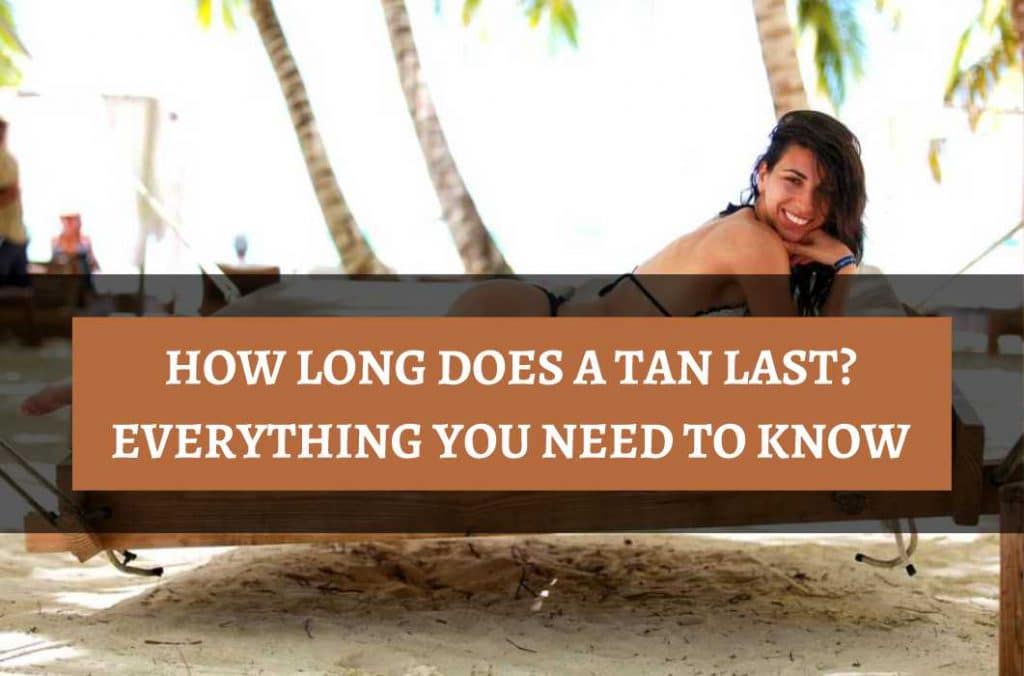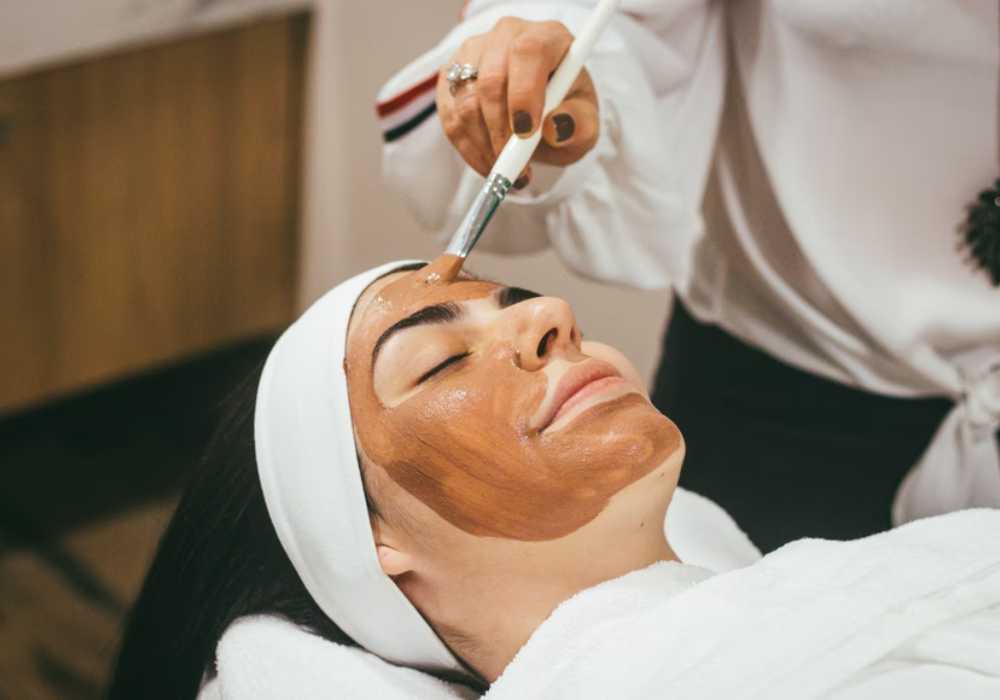As an Affiliate, We may earn a commission that doesn't cost you extra from qualifying purchases using links in this post. It helps keeps this blog running.
Before we dive into how long a tan lasts it’s brilliant to get ourselves familiar with what tanning is exactly.
Tanning is the process of darkening your skin color with the help of chemical products or ultraviolet (UV) radiation which permeates to the lower layer of your epidermis where they activate cells called melanocytes. These cells then help you to produce melanin which helps to protect your skin from burning.
Many questions abound about the duration of this process such as how long does skin tanning lasts, why it may fade away quickly or if it ever goes away. Tanning may last for several days to nearly two weeks if properly maintained. However, there are habits such as natural exfoliation, hard scrubbing of the body, and steaming that may make your tanning fade away.
By reading further, you’ll get comprehensive answers to questions you may have concerning how long does it take for a tan to fade and everything you need to know about how to get rid of it.
Read A Specific Section
Does A Tan Ever Fade?
Certainly, a tan is not permanent and will naturally fade over time. The rate and manner in which it fades largely depend on your actions and skincare practices.
Tanning primarily affects the outermost layer of the skin. As part of the skin’s natural regeneration process, this outer layer continually sheds dead skin cells, allowing new cells to surface. Consequently, your tan will gradually fade away on its own as these dead cells are replaced by newer ones. This natural fading process is also assisted by maintaining regular hygiene practices such as bathing and moisturizing while also minimizing sun exposure.
Aside from all that, if you are the type that incorporates exfoliation into your skincare routine, you will expedite the fading of your tan if you keep at it. By gently scrubbing the skin, you will effectively remove dead skin cells, hastening the replacement of the tanned outer layer with fresher skin.
So to some extent, the pace at which your tan fades is under your control, and adopting these skincare measures can help you achieve the desired level of tan reduction.
So, How Long Does a Tan Last?
A natural tan from sun exposure or a tanning bed can last anywhere from one to two weeks (7 to 14 days). However, it’s crucial to understand that this is not a fixed timeframe and a tan’s duration can be influenced by several factors, the main factor being the natural turnover of your skin cells.
If you get a natural sun tan from sun exposure, it usually lasts for around a week or so. This is because your skin naturally sheds dead skin cells, and as these cells slough off, your tan fades. If you got a tan from a self-tanning product like a spray or lotion, it tends to last a similar amount of time, but it can be a bit more variable.
While some self-tanners are designed to give you a more extended tan, the longevity of a tan from a tanning lotion will depend on the quality of the product, how well you applied it, and how effectively you exfoliate before applying the lotion.
How To Make Your Tan Last Longer
Preparation is Key:
Before you even step out into the sun, it’s essential to prepare your skin. Exfoliate gently to remove dead skin cells. This helps your tan adhere better and ensures an even application. Use a scrub or exfoliating mitt to get the job done.
Moisturize Like It’s Your Job:
Hydrated skin holds onto a tan better. Invest in a good-quality moisturizer and apply it daily. Look for one that’s free from harsh chemicals and fragrances to avoid any irritation.
Stay Hydrated Inside Out:
Drinking plenty of water helps maintain your skin’s elasticity, which can prevent your tan from peeling or fading prematurely. Aim for at least 8 glasses a day.
Bronzer Over Burn:
If you want to maintain your tan without additional sun exposure, opt for a self-tanning product or bronzer. It’s a safe way to keep that beachy look without risking your skin’s health.
Avoid Hot Baths and Saunas:
Hot water can strip your skin of its natural oils, causing your tan to fade faster. Opt for lukewarm water instead, and be gentle when drying off with a towel. Also, frequent visits to saunas while trying to make your tan last is a bad idea as a session in a sauna will open large pores of your skin giving room for your tan to fade.
Choose Your Products Wisely:
Opt for sunscreen and skincare products that are specially designed for tanned skin. Look for formulas with antioxidants and natural oils to maintain that healthy glow.
Mind Your Swimming:
Chlorine and salt water can be harsh on your tan. To protect it, apply a waterproof sunscreen before taking a dip. Afterward, rinse off with fresh water and reapply your moisturizer.
Avoid Sweating It Out:
Excessive sweating can make your tan fade faster. If you’re planning a workout, try to do it during the cooler parts of the day and rinse off afterward.
Wear Loose-Fitting Clothing:
Tight clothing can rub against your skin, causing your tan to wear off faster. Opt for loose, breathable fabrics to keep your tan intact.
Patience is a Virtue:
Remember that tans naturally fade over time, so don’t be disheartened when it starts to lighten. With proper care, you can prolong its lifespan.
Can a Tan Be Permanent and Last Forever?
Nothing good lasts forever, and that includes a good tan. So, No! Tans can’t be permanent, although they can stay for a duration of time, say a week to 14 days. This is because tan only affects the outer layer of the skin and since new skin cells must develop after the old ones, ultimately; the tanned skin cells will become dead and get exfoliated away in a natural biological way.
How Long Does It Take for a Tan to Fade Completely
If you are wondering how long for a tan to fade, on average; it takes at least 14 days for a tan to fade completely. However, the duration of a tan depends on some factors like your skin type, tan technique, and how fast your skin exfoliates.
A tan on a dark or olive-skinned person usually lasts longer than a beige or fair-skinned person.
How long it takes for a tan to fade can also be dependent on how the skin is tanned. A skin tanned from sunbathing can be expected to last for a week to ten days. While skin tanned with spray tans generally fades away within an average of 3 days, however, you can make it last longer to 10 days with proper preparation and maintenance.
Why Do Tans Fade So Quickly?
Very few people’s tans fade quickly but if you are a few of the minority whose tans get faded too quickly, you might be wondering why and how tans fade so quickly.
Tans tend to fade relatively quickly due to a combination of factors, but primarily because of the natural shedding of skin cells and the body’s continuous renewal process.
Well, tans can fade rapidly for many reasons like:
- Skin Cell Turnover: Your skin is constantly renewing itself. New skin cells are generated in the deeper layers of your skin, and as they mature, they migrate to the surface. As they reach the surface, they become progressively damaged by factors like UV radiation from the sun. Eventually, they shed and are replaced by newer, less-tanned cells.
- Lack of UV Radiation: Sun exposure triggers the production of melanin, the pigment responsible for tanning. However, this process is not permanent. When you limit your sun exposure, melanin production decreases, causing your tan to fade over time.
- Exfoliation: Everyday activities like showering, bathing, and even rubbing against clothing can cause the outermost layer of your skin to gradually slough off. This layer contains some of the tan, so as it sheds, your tan fades.
- Not Enough Moisturizing: Well-moisturized skin retains a tan for longer because it helps preserve the outer skin layer and prevents it from peeling off as quickly. Dry skin is more prone to flaking and losing its tan.
- Swimming and Chlorine: Chlorine in swimming pools can accelerate tan fading. It can strip away the outer layer of your skin and, in combination with sun exposure, lead to a quicker tan disappearance.
- Chemical Products: Certain skincare products and treatments, such as exfoliants, can intentionally or inadvertently accelerate the shedding of skin cells, hastening the fading of a tan.
Here’s Why Your Tan Never Goes Away?
Sometimes you may ask yourself why your tan never goes away, especially in some body areas that are constantly being exposed to sunlight.
It’s important to understand that the sun’s UVA radiation plays a major role in natural skin tanning due to the melanin the body generates to protect against the harm of the UV. The more exposed you are to the sun, the darker your skin gets thereby appearing tanned. So, if your tan isn’t going away you might want to check if:
- You are constantly being exposed to the sun.
- You are not using a sunscreen moisturizer
- You mixed a fake tan into your moisturizers (yes, people do it)
If the above isn’t the case, you might want to make sure you are:
- Using sunscreen
- Exfoliating frequently
- Spending significantly lesser time in the sun
If all proves to fail, then safe skin-lightening ingredients like retinol and vitamin C can be of help when you observe discoloration on your skin or tanning that doesn’t want to fade away.
Here is Why Your Tan May Last for Months and Is It Normal?
Yes, it’s normal for a natural tan to last for months depending on your skin type and tone or maybe the nature of your job. Many people have revealed that their tans usually last some months and that’s why concerns like how long does it take for a tan to fade completely are a frequent inquiry.
Your tanning may last for months if you continually expose yourself to the sun. While this might not be intentional, it certainly contributes greatly to how long a tan lasts because continuous exposure to the sun means continuous exposure to UV rays and this means your body continues to generate melanin.
So, if you’ve noticed your tan is taking longer to fade off or you notice discoloration, the first thing is to limit the time you spend in the sun and use the safe methods discussed above to get rid of your tan faster.
Can a Tan Last For Years?
Although tans don’t and will not naturally last for years on their own, there are factors and methods that will make your tan last longer than usual.
This includes:
- Having naturally darker skin
- Continuously using a sunless tanning lotion
- Using spray tan regularly
- Spending a lot of time in the sun
- Avoiding moisturizers with sunscreen
It’s important to note that tanning pills and supplements, such as lotions or pills do not work and may be dangerous according to the FDA.

I’m Akin, your dedicated Editor-in-Chief and a fervent skincare enthusiast. Self-care is my true passion, and each year, I embark on a thorough exploration of self-tanning products, ranging from lotions to mists. This forms the bedrock of our commitment to delivering top-notch information to our readers. My extensive research and precise product rankings empower you to make informed decisions tailored to your specific skincare needs.
Unlock the Secrets to Achieving Your Ideal Tan with This Comprehensive Checklist



